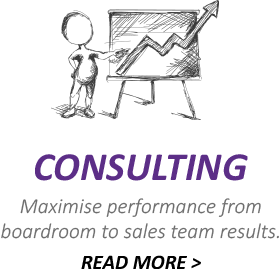How many firms really possess accurate information on their sales forecast and overall sales pipeline?
Take a walk around the departments in your organisation and you will see many departments that are much more advanced than sales. They enjoy a fundamental understanding of their internal workings, and are able to direct their day to day business with confidence toward their ultimate objectives.
Finance for example has a strong set of metrics with clearly understood implications. Any finance professional can easily analyse and discuss the relationships among income statements, balance sheets and cash flow. It’s a common language, they have a discipline.
Manufacturing too has a set of recognised processes to control and direct production. Ask any plant manager and he can give you a list of standard measures such as throughput, defects and quality control with a clear understanding of how one impacts the other to guide higher performance.
Then you get to the Sales team, somehow we’ve evaded the management structure and professional discipline of our peer groups! There is no sales equivalent of GAAP.
Compared to finance and manufacturing, the discipline of sales is still in its infancy.
CRM, Reporting, and a false sense of Control.
When information technology came along sales had no real formal operating instructions for itself. Most sales managers today work from their own personal experience, opening the door to widely differing approaches.
The result, sales CRM systems were layered on top of unstructured processes and inconsistent execution.
Simply put sales automated its own form of chaos.
Resulting in CRM reporting giving us a false sense of control.
We have to realise that just because we have ‘Visibility’ of an action does not equate to having control over it.
Watching is not the same as directing the battle on the field.
We have Greater visibility but not greater control.
It’s true CRM has given us the power to see the sales force but it hasn’t given us the instructions for what to do with this new found visibility.
What’s at the heart of the problem?
We’re missing the operating instructions for a sales force.
One of the reasons for this is that we don’t truly understand how the numbers work.
The core issue is not IT or Reporting its Sales Management.
Companies have focused on training sales people not sales managers. Believing that Great sellers evolve into Great managers. Well in my opinion that’s a definite maybe.
Sales Management today is a science of rigorous measurement and tracking to producing consistent high performance.
Sales managers are now being viewed by many as an even greater point of leverage over sales performance than front line sales people. They are the primary source of reinforcement for training and they are the main channel of communication between executive leadership and the front line.
It’s the sales managers who are the ones equipping them for battle and giving them their marching orders. So the most painful need in most sales forces today, are well-trained, capable sales managers. I believe that the frontline sales manager is the most powerful point of leverage in any sales force, and providing him or her with the right training and tools to manage her sales people will pay dividends far into the future.
In the boardroom, senior executives often focus much of their time and energy on reviewing the business results, figures that relate to outcomes rather than activities.
The problem is Activities can be managed – Outcomes can’t. So sales managers need to develop an understanding of how the numbers work.
In a recent survey, sales leaders were asked to provide a list of the key metrics that they found the most meaningful in driving the performance of their sales teams.
In total, respondents sited over 300 different Metrics considered to be keys to effective sales management.
You would hope to find common patterns for how smart leadership chooses to organise various sales force metrics. Companies that have invested millions in IT infrastructure and spent decades refining their reports would have settled on a best-practice method of categorising their key performance indicators.
Much to the contrary, the results found absolute chaos.
It’s interesting to note that the survey identified three distinct levels of sales force metrics.
- Sales Activities, which are highly manageable and whose associated metrics can be moved at will.
- Sales Objectives, which can be directly influenced and whose associated metrics can be driven by managing certain Sales Activities.
- Business Results, which are wholly unmanageable but whose associated metrics are determined by the achievement of specific Sales Objectives.
This demonstrates that as sales managers we need to focus on creating clear links from our desired results to our sales objectives. But ultimately the only way to create a true sense of control and visibility is to actively track the key sales activities.
By focusing on the right metrics we can predictably link the business results desired in the boardroom with the sales activities on the ground. We can help sales managers drowning in a sea of data to focus their attention on the few metrics that really matter. Enabling them to give their sales teams clear direction on how to achieve their sales objectives. Finally we will be on the right track in creating a clear set of operating instructions to drive sales teams consistently to higher performance.

 hello
hello hello
hello

